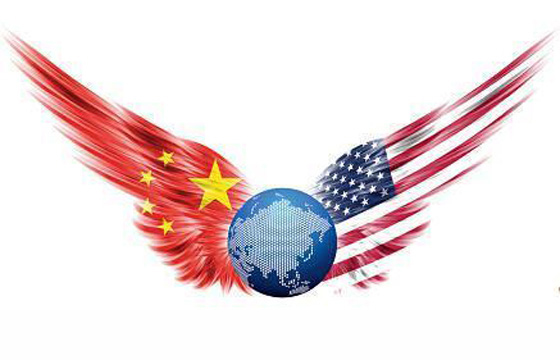Richard Javad Heydarian, Professorial Chairholder in Geopolitics, Polytechnic University of the Philippines
Feb 14, 2025
The latest moves by Trump’s administration are a sharp pivot into new, seemingly accommodating foreign policy. Would less U.S. presence around the world embolden China to make aggressive moves into contested spaces?
Joseph S. Nye, Professor, Harvard University
Dec 27, 2024
Prediction is always difficult, but doubly so in the case of the US president-elect. Donald Trump not only speaks loosely and changes his positions often; he al
Chen Jimin, Guest Researcher, Center for Peace and Development Studies, China Association for International Friendly Contact
Dec 24, 2024
Despite his unpredictability, Donald Trump seems committed to the current strategic trajectory. But China has gained a deeper understanding and accumulated significant experience. It will likely approach America’s Indo-Pacific Strategy with greater confidence and composure in Trump’s second term.
Luo Liang, Assistant Research Fellow, National Institute for South China Sea Studies
Apr 30, 2024
The United States talks the talk but fails to walk the walk. It is angling to create a mini NATO parallel organization in the Asia-Pacific region by enlisting the Philippines and Japan. Its Cold War thinking only creates conflict and confrontation — hyping security threats and sabotaging peace and stability.
Warwick Powell, Adjunct Professor at Queensland University of Technology
Apr 25, 2024
The United States has intensified its efforts to assert or reclaim American Primacy in Asia. Assert if one holds the view that it still holds military preponderance; reclaim if one believes that it doesn’t. Through a series of so-called mini-lateral arrangements, the US has in recent years sought to enlist its Asia Pacific client states, former colonies and subimperial allies to anchor a 21st Century bulwark on the western edge of America’s Lake. The Quad, AUKUS and now the trilateral involving Japan and the Philippines form part of a lattice-like network, in all practical intents and purposes, aimed squarely at the containment of China.
Richard Javad Heydarian, Professorial Chairholder in Geopolitics, Polytechnic University of the Philippines
Jul 21, 2023
Renewed talks between the U.S. and China have led to a flurry of speculation on what the near future holds, but perhaps no one is watching as closely as China’s neighbors who would prefer de-escalated tensions sooner than later, especially if it means avoiding crossfire between the two rivals.
Nathaniel Schochet, Analyst and CJPA Global Advisors
Earl Carr, Founder and Chief Executive Officer at CJPA Global Advisors
May 31, 2023
The Biden administration recently wrapped up two important state visits with President Yoon Suk Yeol of South Korea and President Ferdinand Marcos of the Philippines. The meetings signify that Biden is on a trek to improve and affirm ties with key Indo-Pacific countries, but it must continue this trend if the U.S. wishes to remain relevant in the region.
Chen Jimin, Guest Researcher, Center for Peace and Development Studies, China Association for International Friendly Contact
Apr 24, 2023
Success or failure is closely linked to China’s ability to influence its own neighborhood, as America’s real purpose is the creation of a NATO-style regional alliance. For the U.S., much depends on whether it can accommodate the concerns of countries that don’t want to take sides.

Bala Ramasamy, Professor of Economics and Associate Dean and Director of the Global EMBA Programme, China Europe International School in Shanghai
Matthew Yeung, Associate Professor at Lee Shau Kee School of Business and Administration, Hong Kong Metropolitan University
Apr 17, 2023
The shift of the US policy from engaging China to containing China can be traced back to the Obama administration and his pivot to Asia strategy in 2009.
Richard Javad Heydarian, Professorial Chairholder in Geopolitics, Polytechnic University of the Philippines
Apr 04, 2023
The U.S. and China’s growing rivalry was bound to affect global relationships on multiple levels. Already having established the AUKUS program, the U.S. is also pursuing an adjacent Japan-Philippine-U.S. alliance which will add another security barrier in the Pacific, a difficult fence to raise in a region where many countries rely heavily on China for trade.
Back to Top

- China-US Focus builds trust and understanding between the U.S. and China through open dialogue among thought leaders.
- Our Offerings
- Topics
- Videos
- Podcasts
- Columnists
- Research Reports
- Focus Digest
- Stay Connected
-
Thanks for signing up!
- Get the latest stories from China-US Focus weekly.